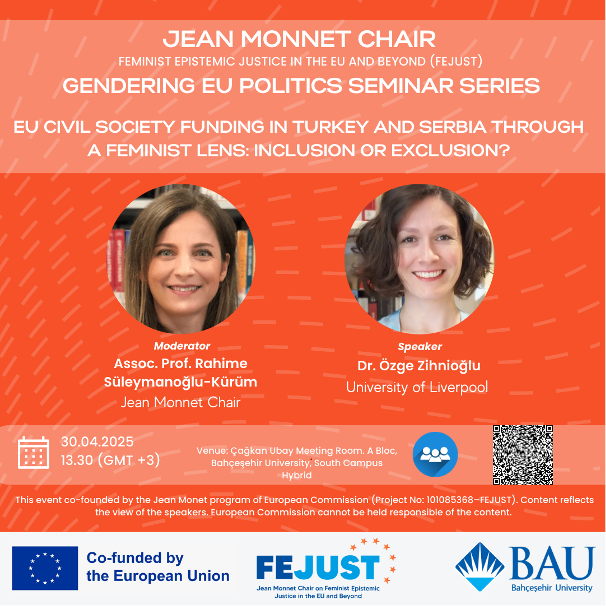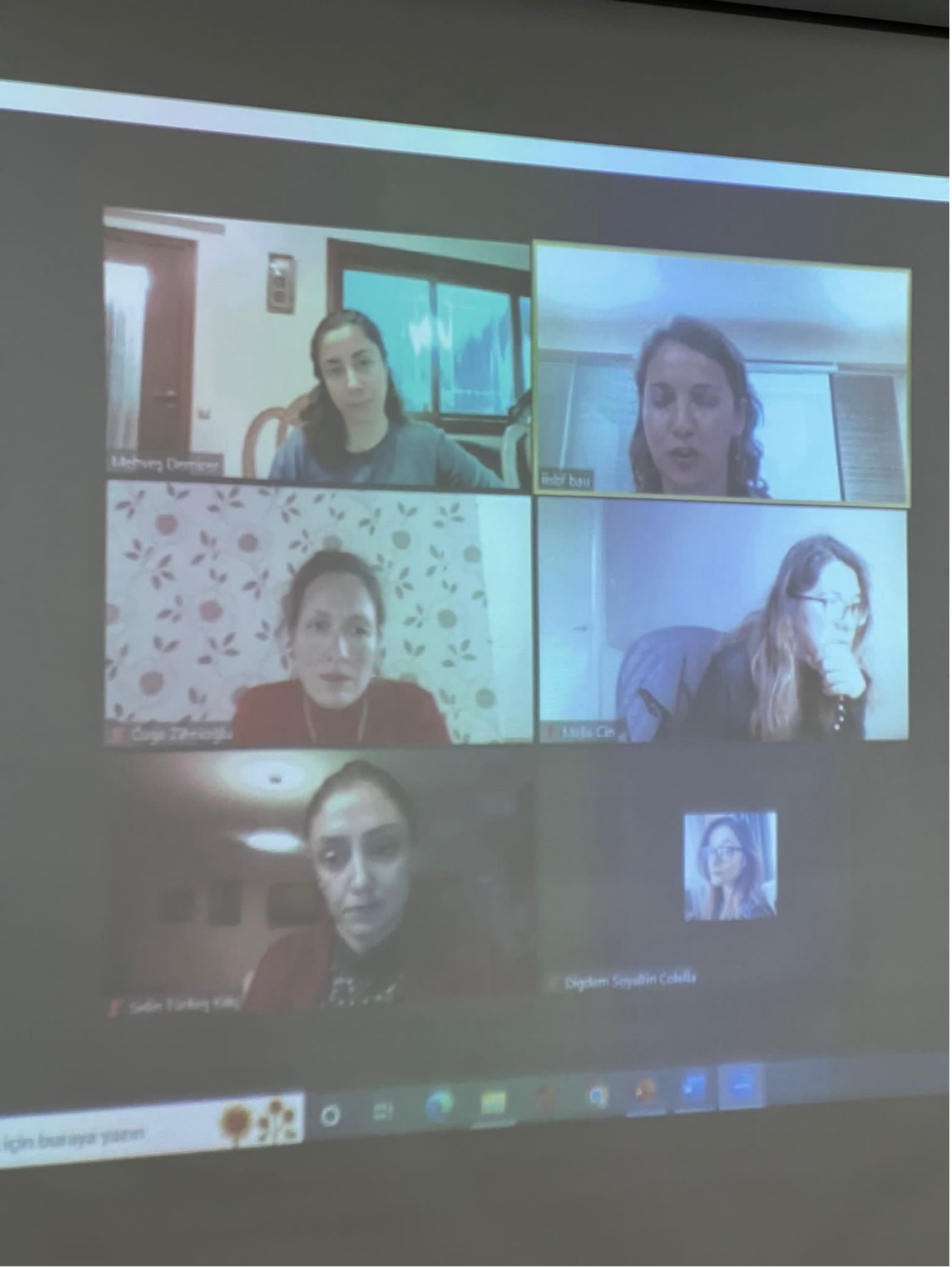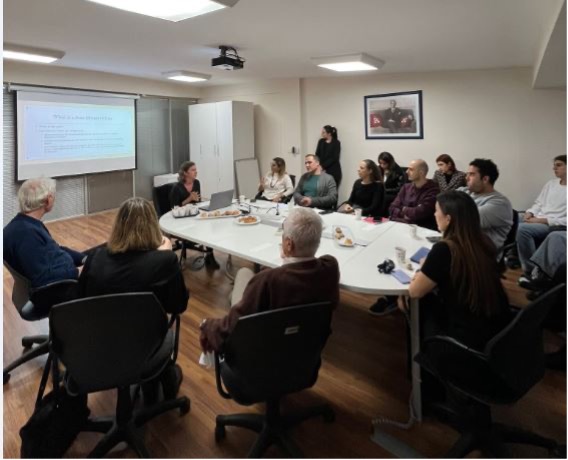Gendering EU Politics Seminar [No.]: “EU Civil Society Funding in Turkey and Serbia: Inclusion Efforts, Epistemic Exclusion”, 30 April 2025, by Özge Zihnioğlu, University of Liverpool. The seminar was held in person in the Çağkan Ubay Meeting Room, A Bloc, Bahçeşehir University (hybrid)
Title: EU Civil Society Funding in Turkey and Serbia: Inclusion Efforts, Epistemic Exclusion through a Feminist Lens
Date: 30 April 2025, 13.30
Speaker: Dr. Özge Zihnioğlu (University of Liverpool)
Venue: Çağkan Ubay Meeting Room, A Bloc, Bahçeşehir University (hybrid)

This seminar applied feminist theory—especially feminist epistemology—to interrogate how the EU’s civil society funding architecture in Turkey and Serbia simultaneously promotes CSO inclusion and reproduces epistemic exclusion. Grounded in interviews with EU/national officials and CSO representatives, the analysis mobilised feminist concepts such as testimonial injustice, testimonial quieting, and distributive epistemic injustice to show how consultation designs, funding priorities, and political contexts privilege familiar, high-capacity, often previously funded organizations while marginalising others’ knowledge.
Using a feminist theoretical framework, the talk traced instruments like the Civil Society Facility, TACSO, and resource centres, contrasting Serbia’s delegation-managed model with Turkey’s trajectory from indirect management to EU Delegation control. Despite open calls and multi-level consultations, feminist analysis revealed how selection logics, language choices (e.g., English-only surveys), and securitised environments narrow who counts as a credible “knower.” The result is a closed loop of credibility: recurring actors both shape programmes and benefit from privileged information and networks.
The discussion focused on operationalising feminist epistemic justice in donor governance: (1) broadening outreach beyond insider mailing lists; (2) translating and de-jargonising “action document” processes; (3) publishing transparent inclusion/exclusion criteria and participation logs; and (4) designing feedback channels that materially alter programming priorities, not merely process. Participants explored pathways for structural (third-order) change—in line with feminist commitments to co-production of knowledge—so that diverse CSOs can speak as credible subjects, not just invited consultees. The energetic Q&A highlighted the value of feminist theory for diagnosing and remedying epistemic hierarchies in EU funding governance.

